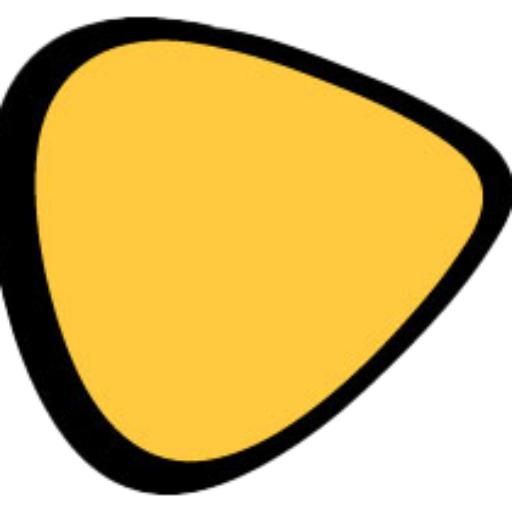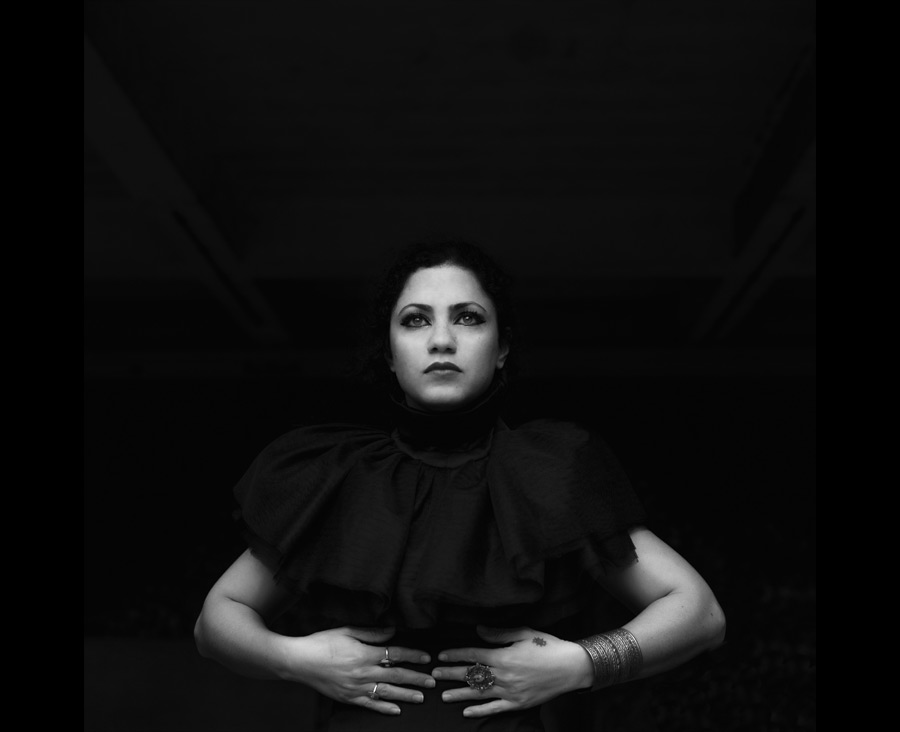Emel Mathlouthi is a rising pop star from Tunisia whose unique style of music steeps electronic beats in North African rhythms while mixing in elements of Western rock. Her music is not just unique for its sound, but also its message. Frequently called “the voice of the Tunisian Revolution,” and raised in an oppressive regime in Tunisia, the 35-year-old singer-songwriter uses her music to speak out against her country’s injustices and to establish an equal platform for Arabic voices and music in the Western world. Mathlouthi has performed at the Nobel Peace Prize ceremony in 2015, and her song “Kelmti Horra (My Word is Free)” is considered an anthem of the Arab Spring uprising of 2010.
Now residing in New York City, Mathlouthi is humble and stoic amid her celebrated status as a musician. She recently finished her North American tour promoting her second album Ensen. Mathlouthi hopes to channel her message of truth to a global audience that isn’t limited by racial, political or religious barriers. DamnMag’s Maxine Betteridge-Moes found out more about the artist’s true meaning of freedom.
[question]When you first started out, was your intent always to make protest music or was this something that developed out of the circumstances in your home country of Tunisia?[/question]
[answer]I think what first started in me is the desire to live. To be constantly animated and passionate about things. Only art fulfilled those needs and helped me develop my imagination. Singing came as an extraordinary means of expressing myself through deep beauty and eventually that deep beauty graduated to be a mix of feeling useful and being able to heal and look at a more hopeful horizon.[/answer]
[question]How do you write your music? What inspires you and helps spark your creativity?[/question]
[answer]Listening to music is a very strong inspiration; there are a lot of songs that have come to me just by listening to very powerful melodies. The best routine I have is to just sit with my instruments and my computer and to be very close to nature … to just empty your brain from the world and get to your depth is a great starter for me.[/answer]
[question]How do you compare your Tunisian audience to your Western audience?[/question]
[answer]The Tunisian audience is obviously special to my heart and not only because they understand the lyrics – which is, by the way, not always very comfortable. But I like to know that the Tunisian audience can see through all the different sides of my work, not just perceive me from a certain angle, or an expectation. Of course, every community has its own view of other cultures but I feel, because we’re a small country, we have so much openness and a certain ease to absorb many different sounds and cultures from the other side of the sea. That makes me feel very excited to share my creativity, knowing that I won’t struggle to not be regarded just as the Arabic revolutionary singer.[/answer]
[question]What does it mean for you to be free at this stage in your life? [/question]
[answer]Our definitions and our visions of ourselves are in constant evolution because there’s always so much to be free from. When I come back to Tunisia in some situations I retrieve the same feeling of wanting to break free from family bonds and some societal perceptions. But living in New York and evolving in the Western world, I have started to fight other boundaries and other walls – racial and cultural for example. I feel as culturally Arab, Muslim, African, Mediterranean musicians, we have to work ten times harder to get respect for our thought and our art. It seems like media and the industry have already done the thinking for where and how we would evolve and have defined our labels for us. It is very oppressive to be constantly expected to show your ethnicity, or to have to respond to people’s exotic expectations. So to me, being completely free is to be equally treated as a “white artist” to have the space necessary to explore myself in as many angles as I wish.[/answer]
[question]How have you grown as an artist and what have you learned about music between your first and second EP?[/question]
[answer]That’s the best part of being an artist, to keep floating, let the sounds marinate and then observe through time how your ideas and thoughts progress. I think I somehow got deeper, dug more in myself and got closer to the most honest expression of my art and myself. It’s very hard to point at what I specifically learned in music, because it’s all textures, experimentations, but I certainly learned to trust myself fully and not compromise because of what others would think about my method or my choices.[/answer]
[question]Do you find that you have enough of a platform to share your music now that you are living and working in New York City?[/question]
[answer]Not exactly yet. I feel that being in New York definitely enriches your perspectives and makes you go wilder and be more creative but it is very hard nowadays for people like me to have the space I think my music deserves, just because it is different and sung in a different language than English. I still believe strongly though, that New York is still the only place that could allow me to spread in a much broader and more interesting way.[/answer]
[question]What do you hope to achieve in your musical career in the years ahead? How do you keep growing as an artist and as a person? [/question]
[answer]I hope to be equally treated and considered as any other Western artist with the same skills; to be offered the opportunities that my music production and my vocals would deserve and not be constantly thrown in ethnic or political context. That is my biggest goal.[/answer]
Mathlouthi has shows lined up in Canada, Europe and the Middle East for the duration of the summer and into the fall. For more info and tickets visit her website.
This interview has been edited and condensed.

